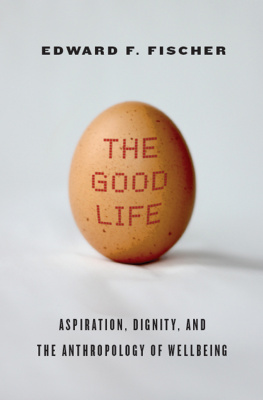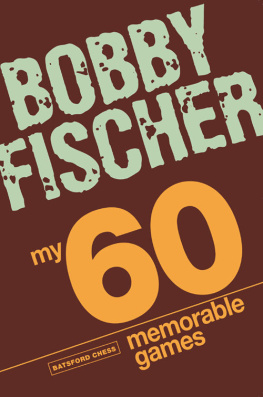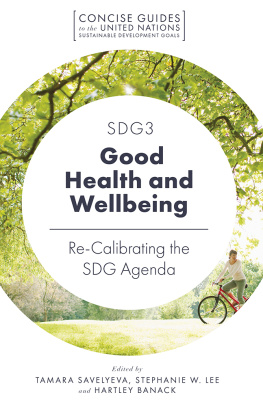Stanford University Press
Stanford, California
2014 by the Board of Trustees of the Leland Stanford Junior University.
All rights reserved.
No part of this book may be reproduced or transmitted in any form or by any means, electronic or mechanical, including photocopying and recording, or in any information storage or retrieval system without the prior written permission of Stanford University Press.
Printed in the United States of America on acid-free, archival-quality paper
Library of Congress Cataloging-in-Publication Data
Fischer, Edward F., 1966- author.
The good life : aspiration, dignity, and the anthropology of wellbeing / Edward F. Fischer.
pages cm
Includes bibliographical references and index.
ISBN 978-0-8047-9096-3 (cloth : alk. paper) ISBN 978-0-8047-9253-0 (pbk. : alk. paper)
1. Well-beingCross-cultural studies. 2. Quality of lifeCross-cultural studies. 3. Economic anthropologyCross-cultural studies. I. Title.
HN25.F57 2014
306dc23
ISBN 978-0-8047-9261-5 (electronic)
Typeset by Bruce Lundquist in 10/14 Janson
EDWARD F. FISCHER
The Good Life
Aspiration, Dignity, and the Anthropology of Wellbeing
STANFORD UNIVERSITY PRESS
STANFORD, CALIFORNIA
For Mareike, Johannes, and Rebecca
Preface
The genesis of this project, as with so many ethnographic endeavors, began with a chance encounter: in this instance, a reproachful look from the owner of a small cinema. I was in Hamburg with my family over the Christmas holidays, and my 7-year-old son desperately wanted to go see the recently released Harry Potter movie. We had come to Germany to visit family but also to take a breather from the frenetic commercial pace of stateside holidays. Still, Johannes had cheerfully attended all of the gemtliche feasts and gatherings, and so we felt that we could hardly deny him such a simple, easy pleasure. Thus, on the zweiten Weihnachtstag (the second day of Christmas, December 26, a public holiday), we looked up the schedule in the newspaper and discovered that a neighborhood cinema had a showing at 5:30 that evening. With good German punctuality, and led by my good German wife, we arrived a few minutes after 5:00, only to find a long line already stretching from the ticket window. We took our place at the end of the queue and arrived at the window just in time to buy three of the four remaining tickets, much to the dismay of the family behind us.money, I asked why she did not offer earlier matinees since there was obviously a demand. She looked at me over half-rim glassespausing for a moment as if she did not know where to startand replied reproachfully that during the holidays kids should not be inside watching movies; rather, they should be at home with their families or playing in the park. She was pleased with my surpriseit seemed to be the effect she was going forthat a small-business owner would voluntarily support a notion of common good at the expense her own material gain, a moral position at odds with the rational expectations of much economic theory and a stance that would be foreign to many American entrepreneurs.
This was one of those a-ha moments of participant observation and ethnographic fieldwork that Willis and Trondman (2000) write about, when a pervasive yet subtle pattern crystallizes for a moment in a concrete interaction. The cinema incident reminded me of experiences from my years of fieldwork in Guatemala, those many economic anomalies (and yet cultural consistencies) in which social concerns trumped self-interested rationality. Once while living in the Kaqchikel Maya town of Tecpn, some friends from there (who had studied abroad and secured good jobs working for international organizations in Guatemala City) came home for a visit. My wife and I were pleased to see them and gladly accepted when they invited us to go with them to the land they kept in one of the surrounding hamlets. Getting to their fields was a trekwe drove about five kilometers and then hiked over a small mountain. I had thought we were just going to check out the land and maybe clean up a little bit, but as it turned out we worked all daywith a break to eat tamale-like chuchas heated over a fire for lunchto harvest the remains of what was missed when the hired hands gathered the crop. In the end, we wound up with a few paltry net loads of maize (which is often carried in large nets on ones back). I was surprised, and frankly a little irritated, at having worked so hard for such a small reward, and that my friends would take time off from their relatively high-paying jobs since, in economic terms, the maize we harvested that day was not worth nearly what their time could garner in wages. Given the opportunity costs, spending our time this way did not make economic sense. I said as much to our friends, and they replied that it was not just about the money, the monetary value of the maize, but the fact that this maize came from their ancestral plots; that the maize from there tastes different, better; and that, in any case, it is xajan (taboo) to waste maize (one is taught as a child not to drop it or step over it). Most important, they stressed, are these affective ties to the land, a connection with the collective weight of history and the generations of relatives who had worked this land, a value that could be measured in financial terms. Here land and its produce embody familial and social values that coexist with, and sometimes trump, their value as an economic asset.
A final introductory example comes from closer to home, from a cab driver who picked me up at the airport in Washington, D.C., a few years back, just before the city switched to a dashboard meter system. Arman owned the Lincoln Town Car that he drove, and he had it arranged like a car service car, with the front seats moved all the way forward to give more leg room in the back and a newspaper tucked into the seat-back pocket. He obviously took pride in his vehicle, and when I asked him about it he said that he could drive an old beat-up taxi and charge the same fares, but that he liked the professional style. He went on to say that he studied maps and monitored traffic so that he would always know the best route around the city. When I asked him about the switch to meters, he said he was opposed. I protested that the zone fare was such an opaque system for visitors, and that I always had the vague feeling that I overpaid for cab rides. He said that he never overchargedbut when his passenger seemed to him to have money, he charged the normal full fare; for needier passengers he often reduced the zone price to give them a break. He would work out, in the blink of an eye, a complex algorithm, taking into account all the subtle signals of dress and speech that a passenger conveyed, to come up with what he judged to be a fair and just fare. He took great pride in achieving excellence in his trade and he stressed the value of having a sense of control over his life that meters would partly take away.
In each of these stories we find folks motivated by culturally embedded conceptions of the good life. They envision particular sorts of futures for themselves and the worldthe agency to control their own destiny, the meaningful obligations of family and friends, the delicate balance between private interests and common goods. We see individuals giving meaning to their economic activities, each seeking the good life each in his or her own way, and often in ways that run counter to their immediate material interests.
Amartya Sen (1997: 34) observes that, first, there is the broadly ethical question How should one live? To emphasize this connection is not the same as asserting that people will always act in ways they will themselves morally defend, but only to recognize that ethical deliberations cannot be totally inconsequential to actual human behavior. The examples above, and the many that follow, show individuals making decisions based on culturally particular and deeply held values: valuingmateriallythings beyond narrowly defined self-interest. These are economic decisions embedded in larger projects, actions motivated by particular conceptions of the good life. Our understandings of economics, commerce, public policy, development programs, and, indeed, of our own quotidian ways of being and doing, can benefit from taking into account these different value systems. What follows is my effort to move in that direction, looking for best practices and cautionary tales across cultures to develop a positive anthropology of wellbeing.
Next page













